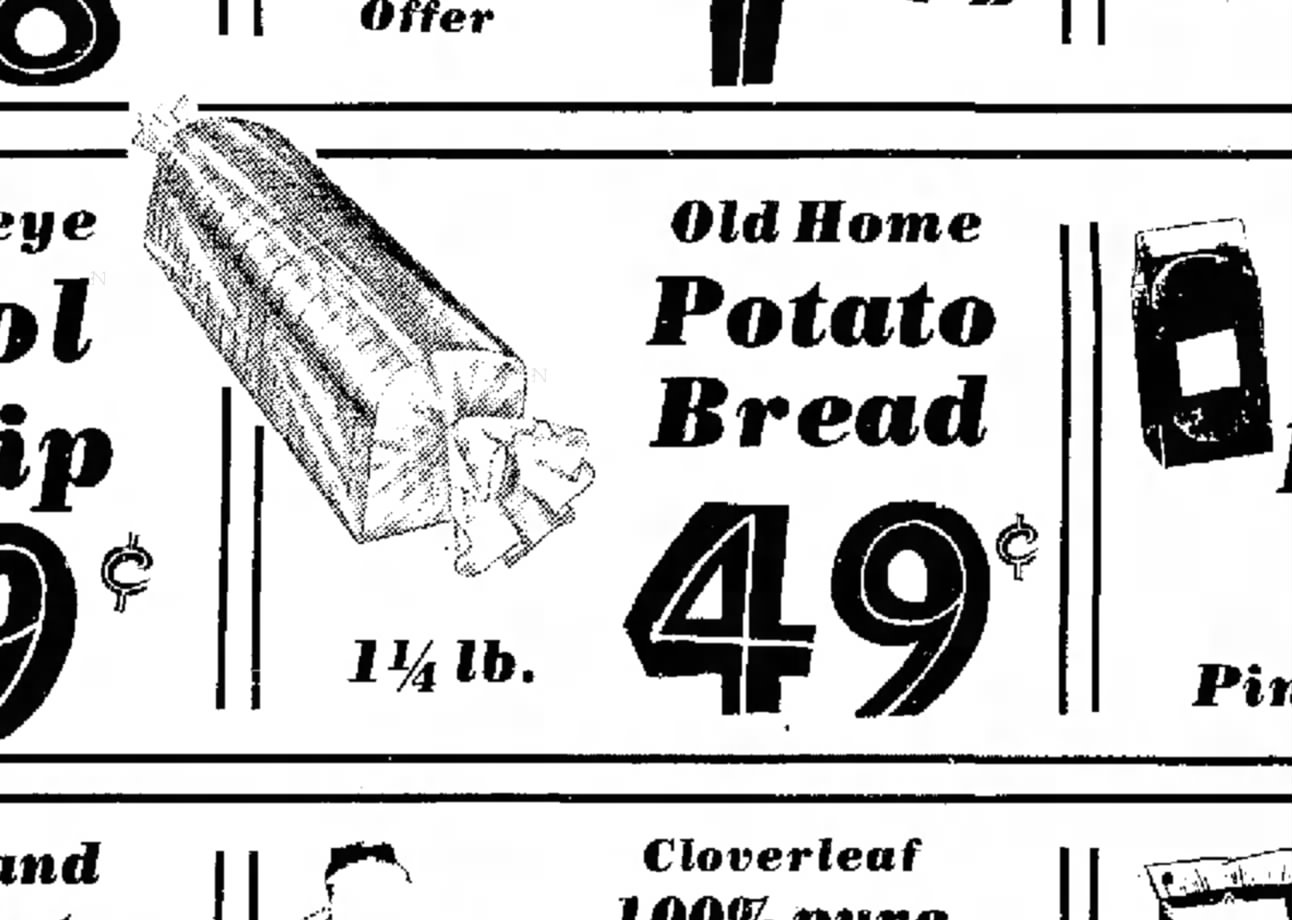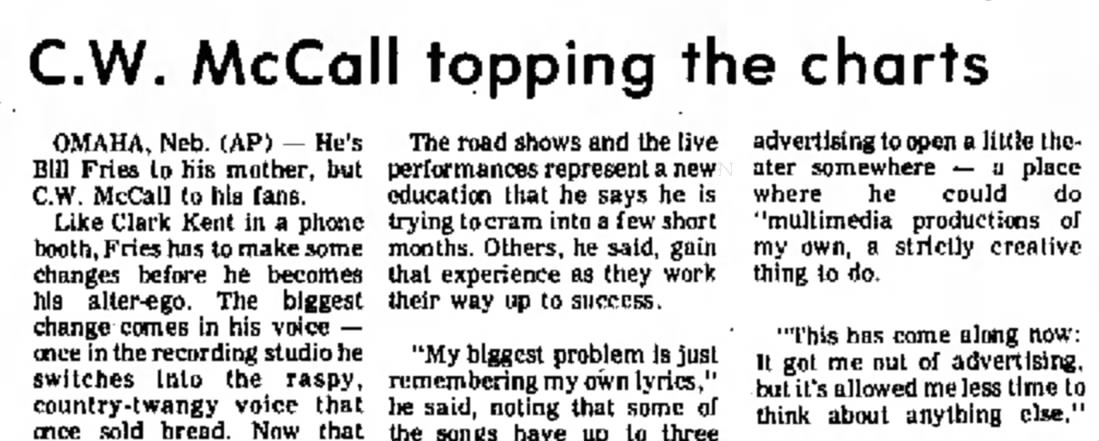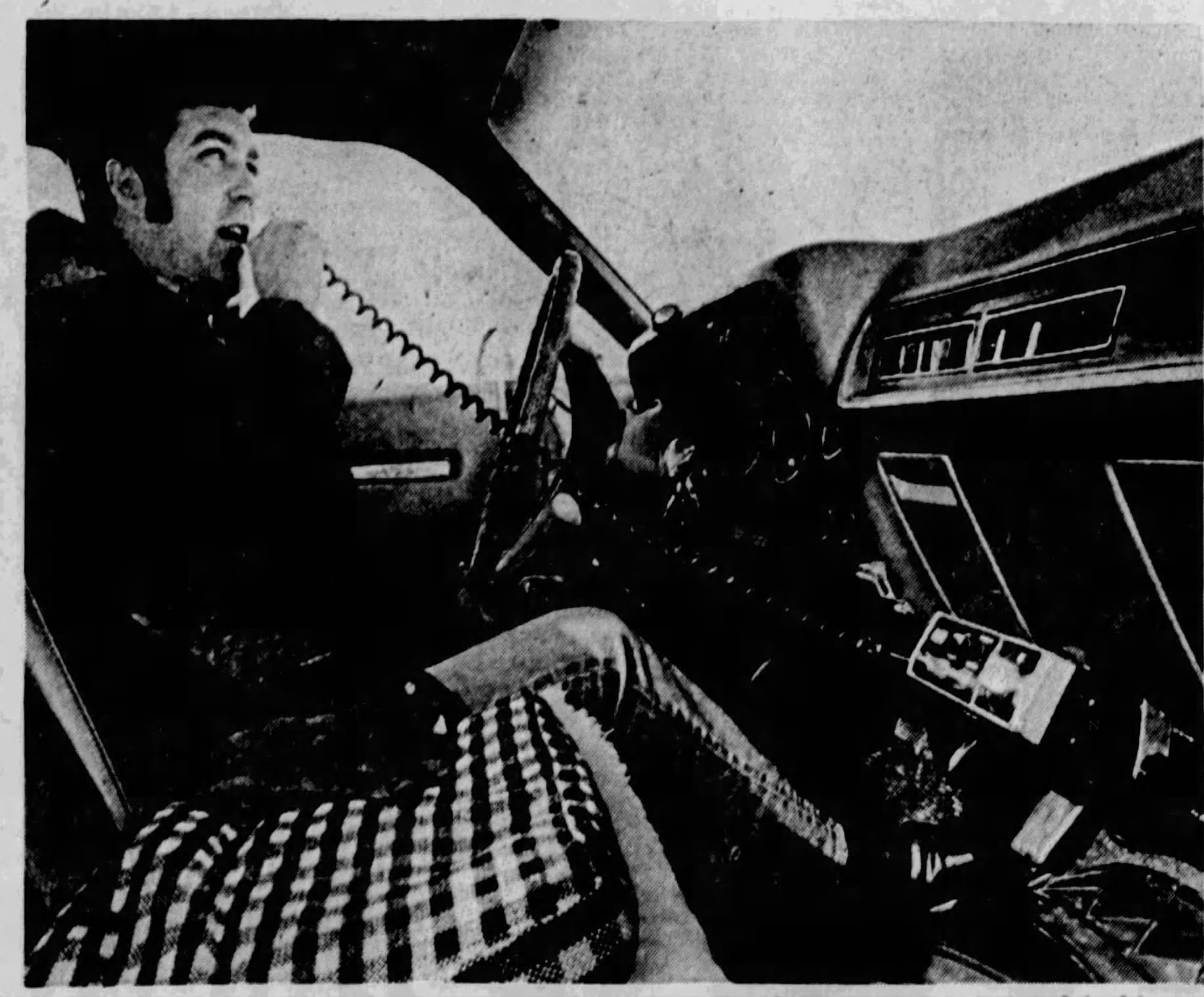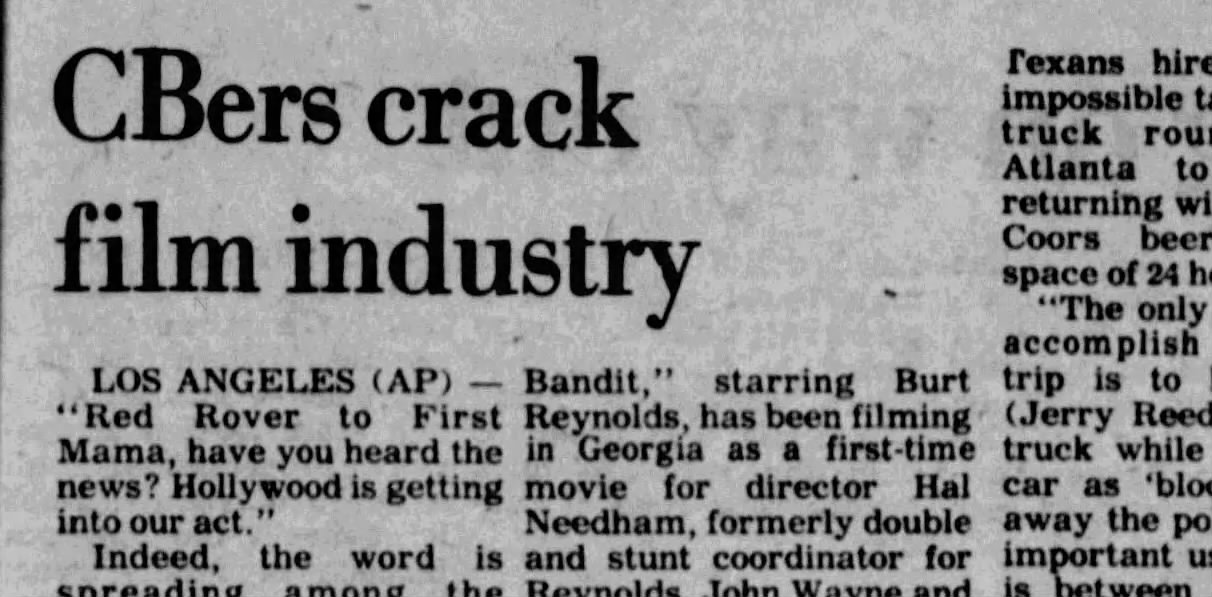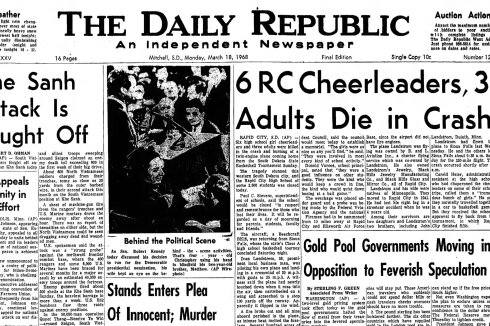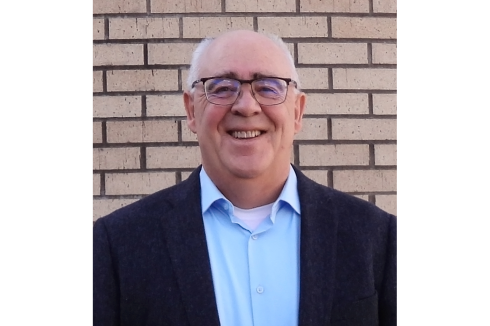A upper Midwest baking company's advertising campaign created not one, but two cultural phenomenons: the 1976 No. 1 hit song "Convoy" by C.W. McCall and the group Mannheim Steamroller, best known for its touring Christmas specials.
How did this happen? It all started with a loaf of bread in 1974 — or rather, a bunch of loaves: Old Home Bread.
ADVERTISEMENT
The bread brand, which is still sold in grocery stores, was then a top brand of Metz Baking Co. of Sioux City, Iowa, The company had bakeries around the region, and served customers in Minnesota, South Dakota, Iowa and Wisconsin.
In 1973, Metz wanted an ad campaign for its bread, so it approached Omaha-based advertising firm Bozell & Jacobs. Bill Fries, then the senior vice president and creative director of the company, worked with composer and colleague Chip Davis on a modest TV ad campaign for Metz, creating a trucker character named C.W. McCall, voiced by Fries. Davis' band backed the track.
The rise of C.W. McCall
The first commercial in the series, all of one minute long and dubbed 'Nice Buns,' aired on regional television stations.
The ad featured a story song, twangy country music and a spoken-word, first-person narrative from McCall, who stopped his bread-filled 18-wheeler at the "Old Home Fill-er Up an' Keep-on-a-Truckin' Cafe" amid a snowstorm, and was served eggs on Old Home bread by a flirty waitress named Mavis.
"Yeah, Old Home is good bread," McCall concluded.
The ensuing series of ads — 12 in all — developed the story even further, and advanced the relationship between McCall and Mavis.
The ad series was a hit. Viewers called TV stations asking for replays and the ad campaign won national honors.
ADVERTISEMENT
Metz sold 30,000 copies of the "Old Home Fill-er Up an' Keep-on-a-Truckin' Cafe" song, which caught the attention of MGM records in Nashville. Released nationwide, the song became a top-10 country hit, and got Fries a recording contract. Fries wrote the lyrics and Davis wrote the songs.
"C.W. McCall" had found his moment.
'Convoy' busts out
Fries wasn't a truck driver at all. He was an advertising exec. But he took to the trucker persona and made it his own.
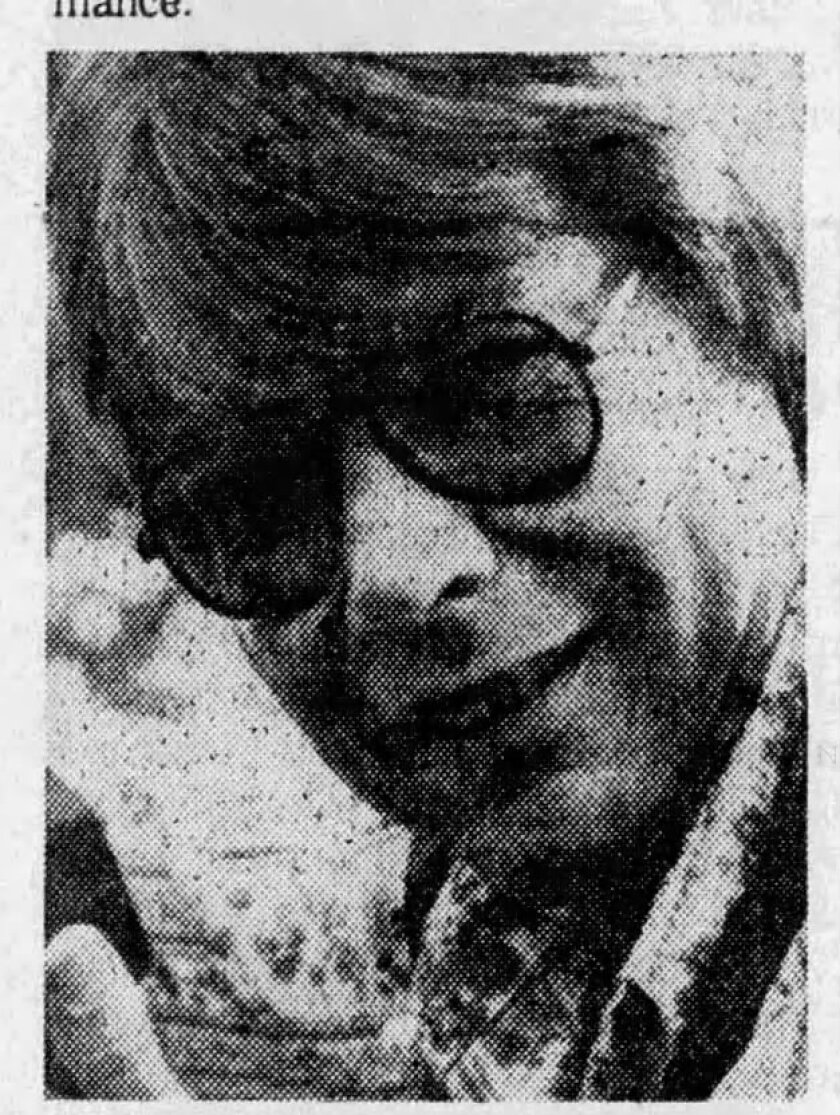
After appearing on multiple TV shows in character, he and Davis released the album "Black Bear Road," which contained the single "Convoy."
In the song, McCall narrates the assembly of a protest convoy of truckers traveling across America and trying to avoid police, communicating all the time via their Citizens Band (CB) radio, using a host of trucker lingo.
The song blew through both the country and pop charts, before hitting No. 1 on Jan. 10, 1976 and becoming a cultural phenomenon.
The song appeared at a unique confluence in American cultural history. It came at a time of rising rebellion against government strictures, including the 55 mph speed limit and skyrocketing gas prices due to Middle East conflict.
ADVERTISEMENT
Truck drivers were having a moment, seen as everyman characters — salt-of-the-earth, well-meaning, a bit rebellious, just trying to do their job amid the hassles of the lawmen and the economy.
McCall's use of CB radios, which were ubiquitous and necessary tools for truckers, touched off a craze for the radios, which had a range of about 5-15 miles. At the time, with an easy to get radio license and relatively inexpensive equipment, you could talk to your friends or family from home or car, decades before cell phones were common.
A commenter on one of the "Convoy" clips on YouTube nailed the modern equivalent: "'70's C.B. Radio, the Original Internet."
In one incident recorded in the Fargo Forum, a salesman on a CB ended up buying coffee for a trucker he met over the radio, as well as selling him a full set of encyclopedias. "CBers," as they were called, were encouraged to aid local police and emergency services as needed.
Fries, as McCall, even began hosting a national call-in show to talk CBs with fellow enthusiasts.
When Betty Ford, the First Lady at the time, got a CB license to talk to friends, Fries as McCall sent her a welcome note.
"Mercy sakes alive, a big ten-four and congratulations to our First Lady on becoming a member of the convoy," he said. "We catch you on the flip-flop. We gone, bye-bye."
ADVERTISEMENT
"Convoy" and McCall's persona also inspired another area of pop-culture: Hollywood.
McCall's "Convoy" and its definition of the trucker and CB zeitgeist inspired the 1977 movie "Smokey and the Bandit" starring Burt Reynolds and Sally Field, and the 1978 movie "Convoy " starring Kris Kristofferson and Ali McGraw.
The cultural moment of truckers and CBs waned in the coming years (although "Convoy" saw a revival in popularity during the 2022 "Freedom Convoy" in Canada), and Fries retired from the music business. But his colleague Chip Davis and his band that backed C.W. McCall had more music in their future.
Mannheim Steamroller emerges
Thanks to the rise of C.W. McCall, Davis now had significant traction in the music business. And he yearned to get back to his true love, composing original music for his own band: Mannheim Steamroller.
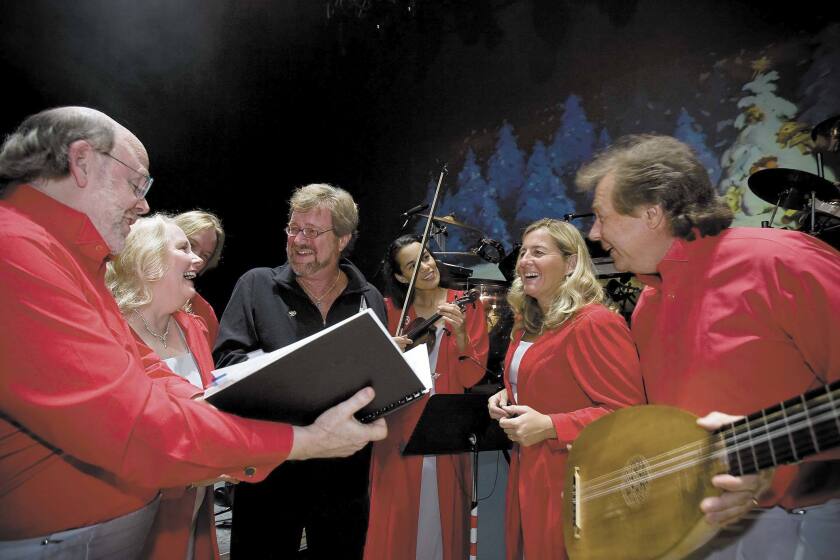
But Davis struggled to gain traction with his group, because record labels couldn't figure out how to classify his work (Davis himself dubbed his music "18th Century Classical Rock"). He released his own album, "Fresh Aire," which got the 1991 Grammy award for best new age album.
Davis found a further niche when he launched the 1984 album "Mannheim Steamroller Christmas," which sold millions of records and became the basis for his still-touring set of popular Christmas shows.
Now, decades after they exploded onto the scene, Mannheim Steamroller and C.W. McCall remain remarkable cultural legacies.
ADVERTISEMENT
All that, from the desire to sell more Midwest bread.



